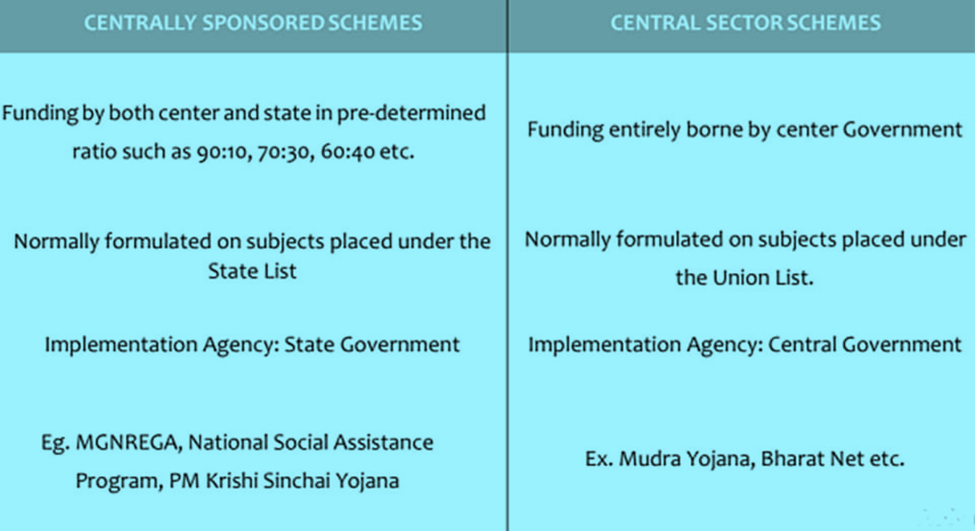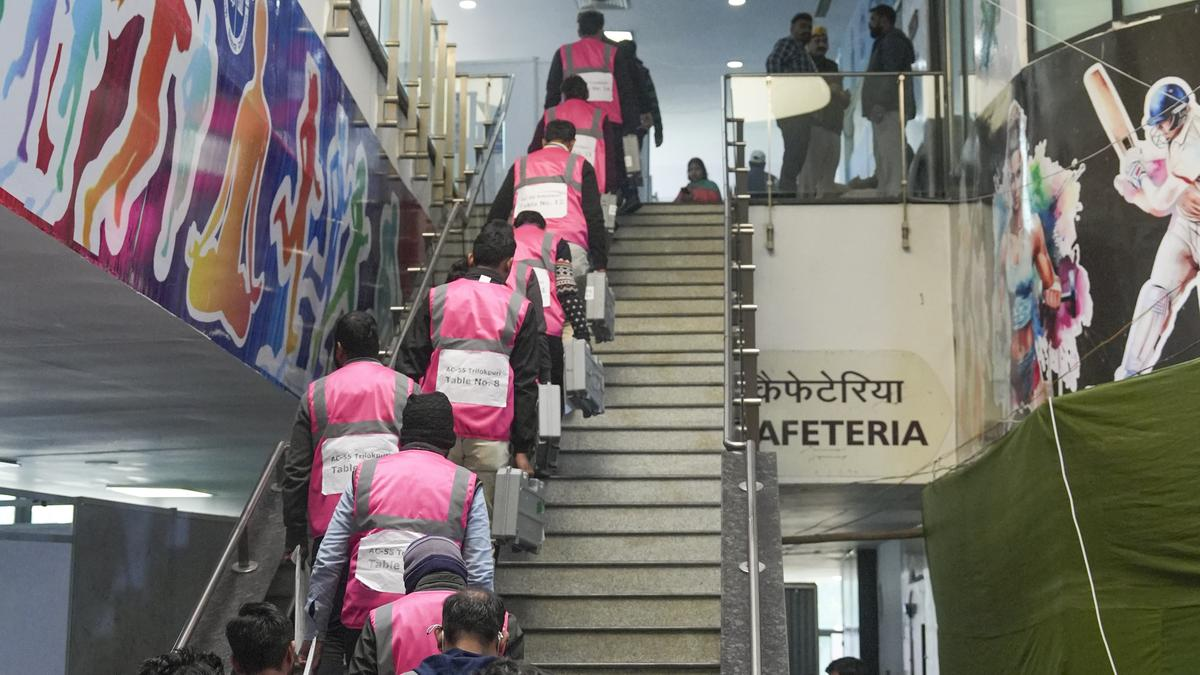Description
.png)
Copyright infringement not intended
Context: The Union Government has tightened the Centrally Sponsored Schemes (CSS) fund flow regulation and, for the first time, added a 'penalty interest' clause for delays in fund transfers by states.
Details
Reduced the period for States
- The Union Government notified all state chief secretaries and requested them to guarantee that their part of the Centrally Sponsored Schemes (CSS) funds need to be sent to the Single Nodal Agency (SNA) within 30 days of receiving central funding, rather than the previous 40 days.
Penal Interest
- Any delay of more than 30 days would result in a 7% annual 'penal interest' charge.
- A state's 'penal interest' for delaying required fund flow will be allocated to the Consolidated Fund of India.

Objective
- The objective behind the Centre's plan is to prohibit states from using the interest earned on central money parked with it for CSS schemes while also accelerating fund flow to last-mile beneficiaries.
- To improve cash management and governmental expenditure management efficiency.
Centrally Sponsored Schemes (CSS)
About
- Centrally Sponsored Schemes (CSS) are one of the main instruments of fiscal transfers from the central government to the states.
- They are designed to supplement the efforts of the states in achieving various socio-economic goals and implementing national priorities.
- They are funded by the central government and implemented by the states with varying degrees of financial participation from them.
- Central and State funding patterns are usually 60:40 for general states, In cases of North Eastern states, Jammu & Kashmir, and some special category states it is a 90:10 ratio.

Types
- CSS can be broadly classified into two categories: Core schemes and optional schemes.
- Core schemes are those that are essential for national development and require uniform implementation across the country.
- They include schemes such as Mahatma Gandhi National Rural Employment Guarantee Scheme (MGNREGS), National Health Mission (NHM), Sarva Shiksha Abhiyan (SSA), etc.
- Optional schemes are those that are based on local needs and preferences and allow flexibility to the states in choosing and implementing them.
- They include schemes such as Rashtriya Krishi Vikas Yojana (RKVY), National Rural Livelihoods Mission (NRLM), Integrated Child Development Services (ICDS), etc.
Objectives
- To encourage and motivate the State Governments to plan and implement programmes that help attain national goals and objectives, such as providing basic amenities, eradicating poverty, improving health and education, etc.
- Reduce regional disparities and ensure balanced development across the country.
- Promote cooperative federalism and encourage state ownership and innovation.
- Address specific gaps and challenges in various sectors and regions.
- Leverage economies of scale and avoid duplication of efforts.
- Ensure minimum standards of service delivery and quality across the country.
- Monitor and evaluate the outcomes and impacts of the schemes.
Restructured and Rationalised in 2014
- CSS has been restructured and rationalised over time to avoid overlap, duplication and inefficiency.
- The latest restructuring was done in 2014 based on the recommendations of the Chaturvedi Committee, which reduced the number of CSS from 147 to 66.

Way Forward
- They are important for achieving inclusive and sustainable development in India. They help in bridging regional disparities, addressing the specific needs of backward areas and vulnerable groups, promoting cooperative federalism and ensuring minimum standards of living for all citizens.
- They are an important instrument of fiscal federalism in India that aims to achieve inclusive and sustainable development across the country.
- They require continuous review, reform and improvement to ensure that they are responsive, effective and efficient in meeting their objectives.
Must Read Articles:
Fiscal Federalism: https://www.iasgyan.in/daily-current-affairs/fiscal-federalism
|
PRACTICE QUESTION
Q. Centrally Sponsored Schemes (CSS) are a major source of funding for various development programs in the states and union territories. It involves multiple stakeholders, such as the central government, the state governments, the local bodies, and the beneficiaries. What are the main objectives and challenges of the Centrally Sponsored Schemes (CSS) in India? Analysis, as well as the suggested measures for improving their design and implementation.
|
https://economictimes.indiatimes.com/news/india/centre-tightens-fund-flow-rulebook-for-css-schemes-brings-penal-interest-clause/articleshow/99415692.cms




.png)
.png)











